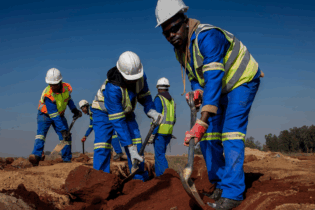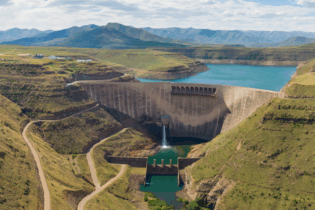
Africa is the only continent that has the potential to achieve double digit economic growth within the next decade. Image: Bizmology
Infrastructure
Scott De Buys, head of deal advisory of infrastructure at KPMG, acknowledged that utilities throughout Africa are challenged. He also said it was very important to remember that although infrastructure was critical in fast tracking the development of utilities, current infrastructure investment backlogs (of around US$90 – 100 billion) remained one of the most prominent challenges for African countries. “Infrastructure development remains at the core of improvement, growth and realising real change within the sector,” De Buys said. As an example, he said if we consider that Africa has the lowest electrification rate globally, then it was clear infrastructure still poses a key challenge. He added that the continent’s current infrastructure deficit was worsened by, but not exclusive to:- A failure to develop solutions that will address the infrastructure deficit on the continent, delaying efforts to make energy accessible to even the remotest of communities.
- Apprehension by the private sector to invest in countries where the financial and legal systems have not been thoroughly tested resulting from lack of infrastructure management on the continent.
- Affordability remains an issue where electricity supply to lower income populations require substantial subsidy support.
- Difficulties in gaining the buy-in of investors and the private sector.
- He said the good news was that there are many programmes in Africa which aim to provide solutions that tackle the issue of infrastructure deficit. An example of this, he says, is the Programme for Infrastructure Development in Africa (PIDA) which aims to promote regional economic integration by building mutually beneficial infrastructure among its other objectives.
Renewable energy
De Buys said current electricity supply challenges have resulted in community sized generation projects and off-grid power solutions. Many of these projects have gained traction among businesses and communities and include renewable energy sources that provide a good subsidy for base load electricity, he added. “The use of renewable solutions has taken off over the past six years where the costs of implementation have reduced substantially,” he said. He added that this has unlocked an alternative window of opportunity for the accessibility of power on the continent. De Buys also said he believed that the conference this year would place a predominant focus on renewable energy, identifying further opportunity and devising collaborative strategies to enhance opportunities in South Africa.Water in utilities
Africa’s strained water infrastructure is another topic that is expected to be wildly debated at this year’s African Utility Week due to the drought, and lack of access to clean, usable water services across many African countries. Antonino Manus, associate director at KPMG, said the core issue in the water sector lies in the lack of infrastructure maintenance. He also pointed out provision for sufficient water supply as an issue.“This can be attributed to a number of factors,” he said, “however, central to the issue is funding and a lack of qualified skills and continued skills development to maintain the upkeep of these plants.”
Manus said there was still an opportunity for the private and public sector to strengthen their partnerships and find sustainable solutions which can result in investment opportunities. He said this collaboration would be useful to streamline the delivery of water to communities. He added that it was the private sector that plays a fundamental role in assisting public sector stakeholders to identify innovative solutions for the roll out water infrastructure projects, and could provide the right advice to best practice in this regard. Manus also said he was hoping to see this integration and discussion at the conference, and hopes a viable solution for Africa would be found.






